What Does It Take To Become An Addictions Counselor?
Addiction is a complex and often misunderstood topic, and it requires an excellent education and years of experience to be a good addictions counselor. Counselors might work with someone who has an addiction to a substance like opioids or work with those who are on probation and face fines or jail time. People who see counselors because of a court mandate are often difficult to help because these clients aren’t committed to giving up their addictions.
The counselor’s role is crucial in helping addicts achieve freedom from addiction, a freedom that allows them to live healthy lives with a clear mind. This can be done by educating people about addiction and its consequences as well as providing counseling services for those suffering from addiction. The counselor’s role is crucial in helping addicts achieve freedom from addiction. They can educate people about addiction and its potential risks and encourage them to get help for their addiction. A counselor can help an addict recover by keeping them focused on the future rather than dwelling on past mistakes and by providing a support system that allows them to choose to live a healthy life.
You need to have a bachelor’s degree to be an addiction counselor. This occupation requires a high level of emotional intelligence and knowledge of the complex mechanisms of addiction. You also need to be at least 18 years old and have completed your undergraduate studies or be enrolled in a graduate program. You also need to complete certain educational requirements, such as passing a state board examination. Most states require that counselors hold either an associate degree or a master’s degree in social work or psychology with at least two years of experience working as an addiction counselor before applying for licensure.
Many Different Types of Addiction Counselors?
Addiction counseling is typically thought of as the form of treatment that covers the whole range of a given individual’s needs. Addiction treatment is a growing field that offers many options to match a client’s needs. Addiction counseling comes in different forms and can include many diverse types of professionals such as case managers, psychotherapists, or drug and alcohol counselors. It is important that these counselors understand the science behind addiction and how to best help their clients. There are many different types of addiction counselors. The nature of counseling work varies. In a typical recovery center, for example, there are three different types of counselors that can be found: the substance abuse counselor, the family counselor, and the medical counselor.
Addiction counseling is a challenging career path that requires skills in a wide range of areas. It is also a highly rewarding line of work because you will be helping people change their lives for the better. When people are addicted to drugs or alcohol, willpower is not enough for them to turn their lives around. As a counselor, you will be advising people on what steps to take to put their addiction behind them. However, there are certain skills that are necessary for this career. If you aspire to be a counselor or work at a rehab facility, these are some skills that you must have:
- Strong analytical and problem-solving skills
- Ability to work with people in crisis
- Empathy and understanding for addiction issues
- Good communication skills
- Computer proficiency and software knowledge
Conclusion
Find a good addiction counselor that you can interview. Perhaps ask people you know if they have any recommendations. It can be really helpful to talk with people who have many years of experience because they know what works and what doesn’t when it comes to how best to address addiction. Additionally, if there is a particular type of addiction that you are interested in specializing in, look online for a local program where you could talk to the types of counselors you would like to train to be.
If the person you are trying to find has an office in your area, call them up and set up an appointment. Although it may be difficult to find a counselor who will share their personal work experiences with you, it will be worth the effort because you will gain a much deeper understanding of the work than merely reading about it. You will learn much more about what life as a counselor is like from someone who is doing it firsthand. Call us at 424-499-2603.
We offer more than a recovery program, offer an experience.
© 2021 California Centers for Recovery. All Rights Reserved.
